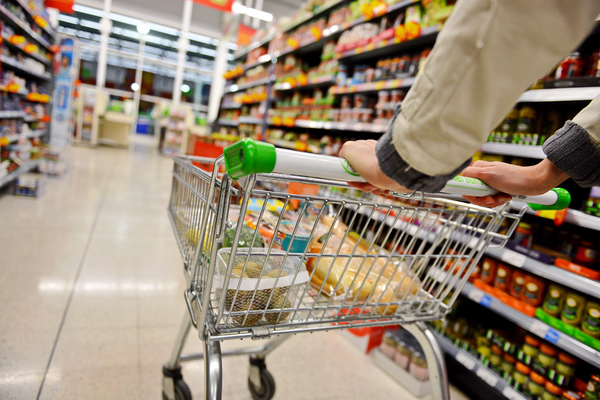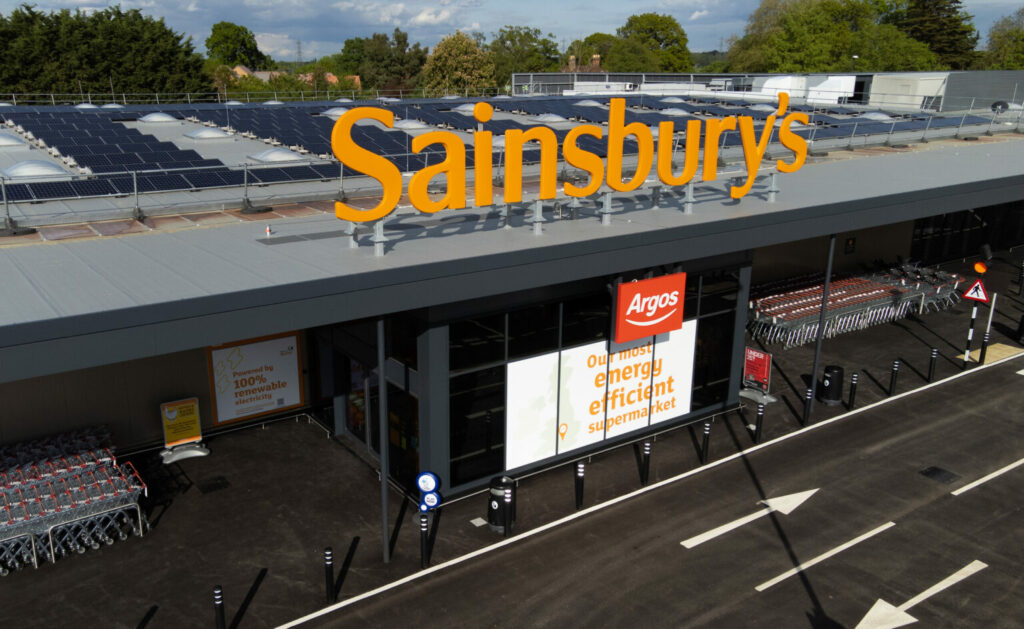// Brits spent £15.2 billion more on groceries since the pandemic started, which equates to around £4800 per household
// This is £500 more than pre-Covid times
// Grocery sales rose 12.5% in 12 weeks to Feb 21, and 15.1% over the past month – the fastest since June
Brits spent £15.2 billion more on groceries during the pandemic as various restrictions over the past year forced the closure of bars, pubs and restaurants, new figures show.
Kantar grocery data revealed each household has spent around £4800 in supermarkets over the past 12 months since the Covid-19 crisis struck – £500 more than in pre-pandemic times.
Supermarkets have seen trade boom amid the pandemic as they have been allowed to remain open, where other non-essential retailers and hospitality have been forced to close for the majority of the past year due to the crisis.
READ MORE:
- Grocers enjoy soaring sales from latest lockdowns
- Northern Ireland protocol checks “could be overwhelmed when supermarket exemption ends”
- Aldi named the UK’s top in-store grocer
The figures reveal supermarket sales rose by 12.5 per cent in the 12 weeks to February 21 and growth ramped up to 15.1 per cent over the past month in the fastest rate since June 2020.
Tesco emerged as one of the winners of the quarter, notching up its first market share growth since December 2016 – at 27.4 per cent, up from 27.3 per cent a year ago as its sales rose 13.2 per cent.
The data revealed online grocery sales reached another new record share in the four weeks to February 21, accounting for 15.4 per cent of sales, up from 8.7 per cent last year, according to Kantar.
It said nearly a quarter of households bought groceries online during the past month as many customers have switched to shopping from home.
“The pandemic has now been making its mark on our lives and completely changing the way we shop for a full year,” Kantar head of retail insight Fraser McKevitt said.
“Various hospitality restrictions mean that we’ve eaten an extra seven billion meals at home since spring 2020.
“Office tea rounds, meanwhile, were replaced by brews in our own kitchens and we drank an additional two billion cups of tea in the house this year.”
However, he added that grocery chains would start to see a drop-off in year-on-year sales growth rates following the anniversary of the first national lockdown next month.
“Sales will be measured against last year’s record spending and comparisons will be tough against the heights of 2020,” McKevitt said.
“Demand for groceries is also likely to subside as the hospitality sector reopens.”
Kantar’s figures also showed Brits made the most of last month’s Valentine’s Day and Shrove Tuesday celebrations despite lockdown.
It found 3.8 million households bought boxes of chocolates in the week running up to February 14 – a rise of 18 per cent – while pancake day drove a 50 per cent jump in sales of flour and chocolate spreads and an 86% surge for syrups.
The market share data showed that Tesco was joined by Big 4 rival Morrisons in enjoying a bumper past quarter, with its sales up 13.9 per cent and market share increasing to 10.3 per cent from 10.2 per cent a year earlier.
Sainsbury’s notched up 12.1 per cent growth and held its share firm at 15.6 per cent, but Asda was the weakest of the major chains with its share falling to 14.8 per cent from 15.1 per cent year-on-year despite sales growth of 10.3 per cent.
Iceland’s market share increased by 0.3 percentage points to 2.5 per cent and its sales rose by 23.9 per cent.
with PA Wires
Click here to sign up to Retail Gazette’s free daily email newsletter

















